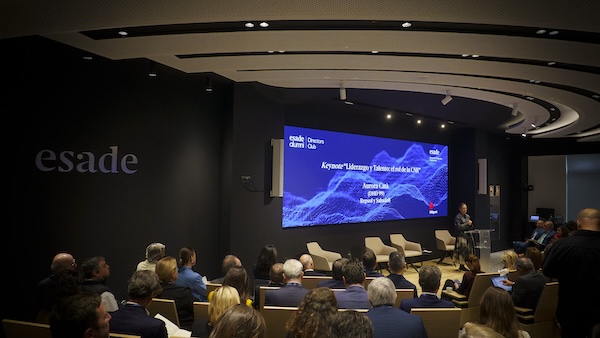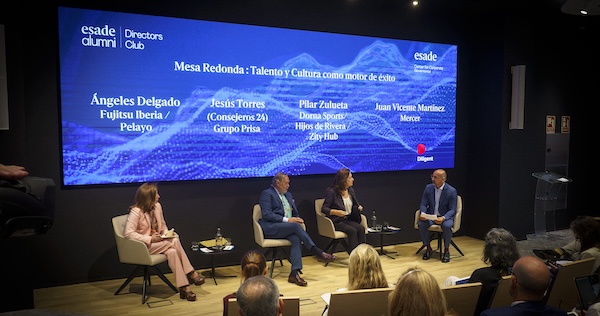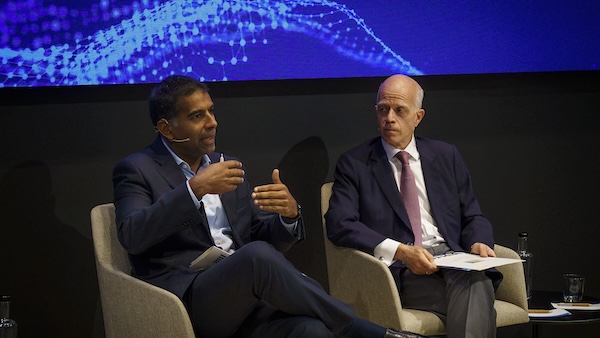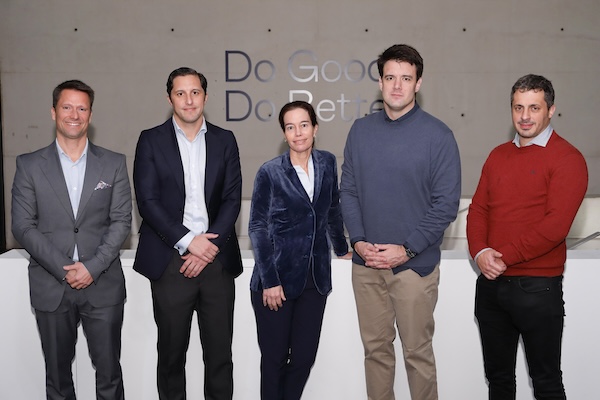Millán Berzosa (Consejeros 23), a member of the Directors Club Board of Directors, shares a report on the Seventh Annual Directors Club Meeting, entitled “The Appointments and Remuneration Committee as a Driver of Change"

This past October, the Seventh Annual Esade Alumni Directors Club Meeting was held with the title of “Talent and Purpose from the Board, the Backbones of the Seventh Annual Directors Club Meeting.” This event, sponsored by Diligent and held in conjunction with the members of Esade’s Center for Corporate Governance (PwC, Georgeson, Diligent, Mercer, and IBM), focused on the Appointments and Remuneration Committee (ARC) as an essential figure in driving change in organizations.
In an increasingly complex environment, the ARC is a key figure not only as a guarantor of good governance but also as a driver of cultural and strategic transformation within organizations.
The ARC: Driver of transformation
After the welcome by Mario Lara, director of the Center for Corporate Governance and Esade Madrid, the president of the Directors Club, Rosa Sanz (AMP 07 / Consejeros 20), highlighted the day’s focus on connecting, promoting, and further exploring corporate governance, with the key role of the ARC, a true agent of cultural and strategic transformation.
In her opening speech, “Leadership and Talent: The Role of the ARC,” Aurora Catá (DHD 99), a board member at Repsol and Sabadell, underscored that companies are what they are “thanks to the talent of their teams,” which is an irreplicable value proposition. She then stressed the ARC’s ability to attract and retain talent to meet the company’s goals, and the importance of connecting (flexible) retribution with promotion and ambition in measuring leadership: “It is essential to ensure that nobody is left behind and you have the best people at the right time in the right place.” She also noted that the current conversation with proxies includes the importance of the succession plan and diversity in companies, essential topics for the ARC, always in reference to the 2023 Spanish Companies Act and the Code of Good Governance, in addition to the CNMV technical guide.
Talent, culture and purpose

The first roundtable, “Talent and Culture as Drivers of Success,” moderated by Juan Vicente Martínez, Partner at Mercer, addressed how talent extends throughout the entire value chain.
· Pilar Zulueta, board member at Dorna Sports, Hijos de Rivera, and Zity Hub, highlighted the need for suitable work environments which allow room for creativity and pride at belonging, and she reminded the participants that the board should prioritize digitalization.
· Jesús Torres, CHRO at Grupo Prisa, associated belonging with engagement and stressed the inclusion of talent management within the S (Social) part of ESG, within the framework of the SDG’s (Sustainable Development Goals).
· Ángeles Delgado, president of Fujitsu and board member at Pelayo Mutua Seguros, defined talent as a competitive advantage and highlighted the figure of the leader for “navigating fears of change.” She urged participants to take advantage of underused sources of talent and to combine this vision with artificial intelligence. She also called on HR to become part of corporate strategic planning.
Next, the interview "Global Talent Management with Purpose," was held with Paloma Beamonte (Consejeros 24), a member of the JD Directors Club, and Carlos Olave, Global Director of HR Strategy at LG Electronics, about purpose as the organization’s raison d’être. They highlighted the importance of the real over the theoretical and warned about the risk of “purpose washing.” The concept of human flourishing emerged in the conversation, along with the need to incorporate the spiritual in a world where transactional attitudes abound. He stressed three pieces of “homework” for the ARC: defining a clear value proposition for employees, guaranteeing the development (and promotion) of people, and fostering leadership.
Retribution, ESG and Good Gobernance

The second roundtable, "Retribution, ESG, and Good Governance", moderated by Ana Plaza (Consejeros 18), vice-president of the Directors Club and board member at Grenergy Renovables, Globalvía, Línea Directa, and Corporación Financiera Alba, focused on connecting compensation with sustainability.
· Teresa Paz-Ares (ESG 22), board member at Bankinter and Logista, stressed the importance of the capacity for anticipation and alignment with strategy, with the choice of the right indicators that include an understandable narrative.
· Carlos Sáez Gallego (Consejeros 22), Country Head at Georgeson, emphasized that the action plan is essential, given that these issues can be used by lobbies to “attack” companies. He also mentioned heavy regulatory pressure and the Georgeson report, which points to more widespread criticism in continental Europe compared to the United Kingdom.
· Susana Marcos, founding partner of Peoplematters and board member at Lontana Group, analyzed the risks and opportunities of connecting compensation to sustainability objectives and suggested working in a more cross-cutting fashion.
The day concluded with the fireside chat "From Strategy to Action: Reflections," with Mario Lara and Daniel Traça, director general at Esade, to showcase the multicultural vision and the idea of discomfort as a driver of change, highlighting the importance of Esade communities to share experiences.






































